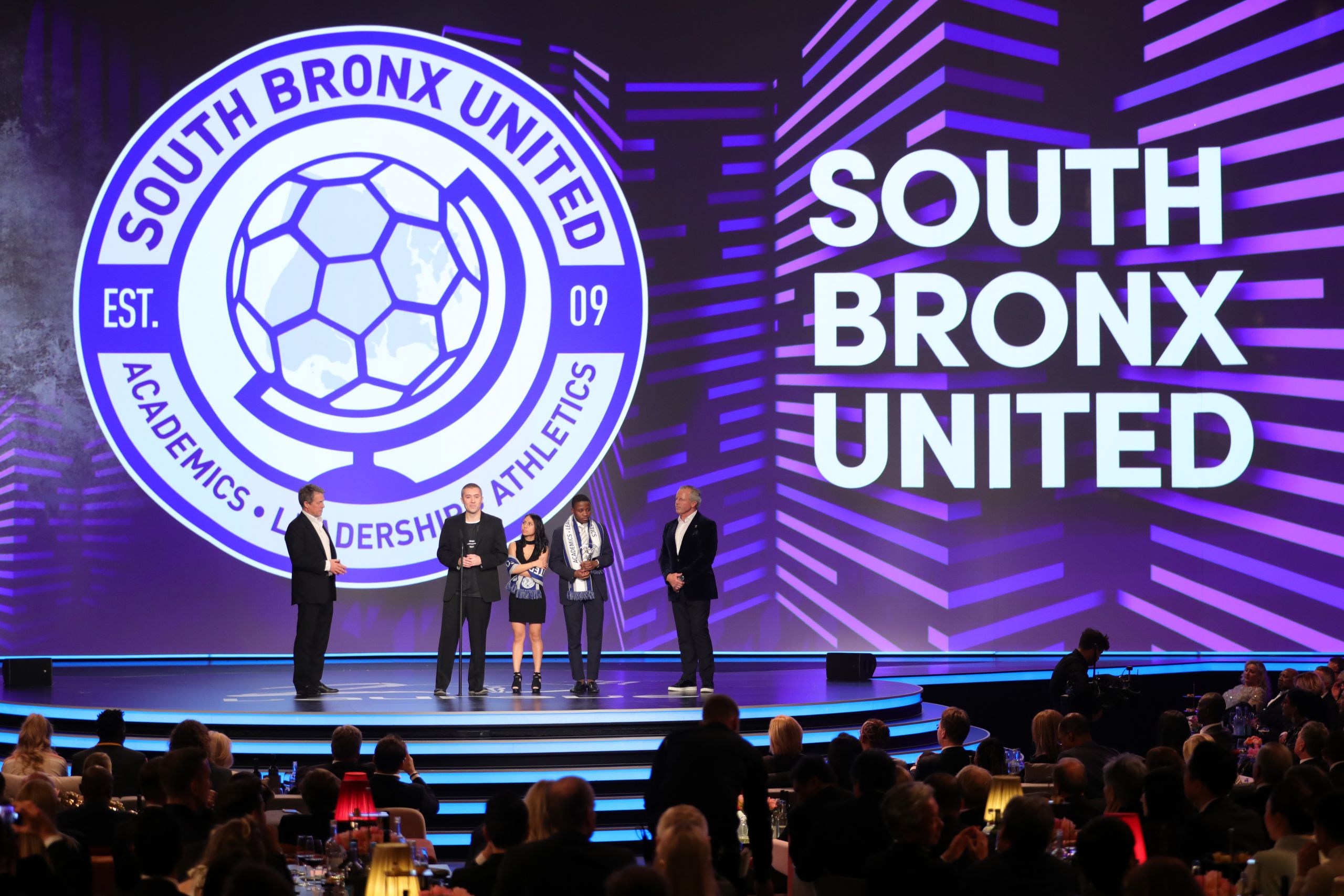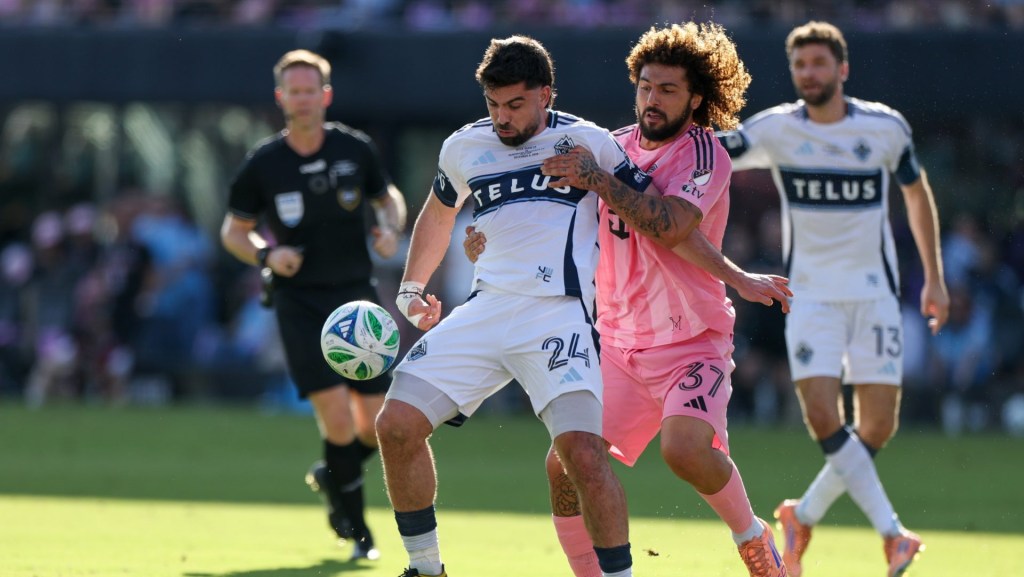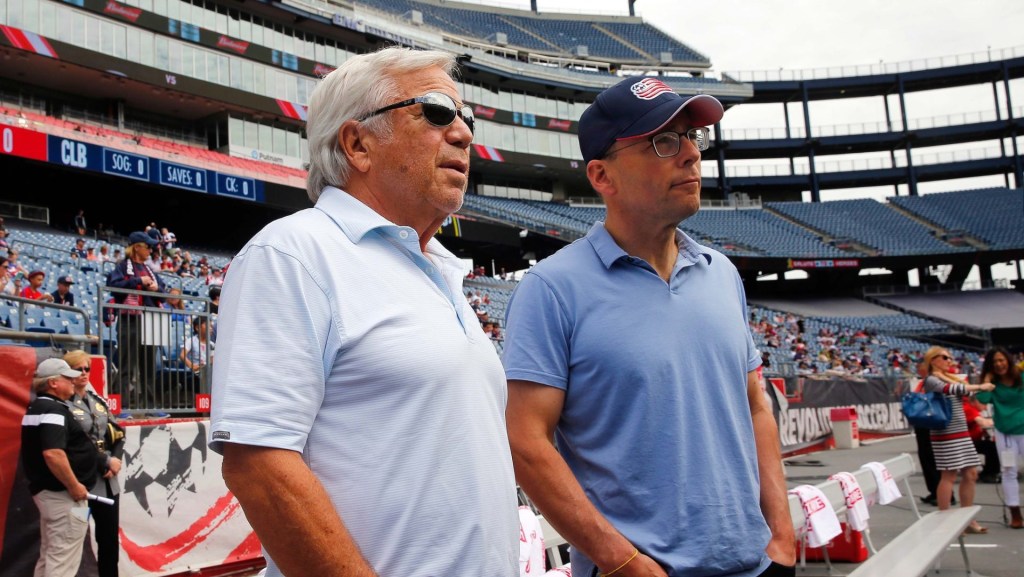The South Bronx neighborhood has the highest poverty rate in the entire country. In 2009, when 38% of the district’s residents and an even higher percentage of children lived below the poverty line, Andrew So, a teacher in the community, decided to start an after school soccer club to give kids constructive time away from school. Today, South Bronx United has developed into a social and economic change engine for the area’s predominantly immigrant students.
So always wanted his organization – affectionately called SBU “to sound cooler,” as one of his students says – to be more than a soccer club. And as an increasing number of immigrant students signed up for his team, he realized they needed it to be more than one, too.
They needed constructive things to do after school and a safe place to play the sport they loved as much as they needed help with getting green cards, graduating from high school, learning about and applying to colleges and getting guidance on career paths.
They also needed more teams to play for, and so SBU grew rapidly, expanding to three teams by the end of its first year. The non-profit now serves 1,200 young people annually through community programs, particularly their SBU Academy Program, which works with middle and high school students through tutoring and advising.
The award-winning program has an unprecedented 100% high school graduation rate over the past eight years among their students, 94% of whom go on to college.
“The proof is in the pudding,” Paul Jeffries, NYCFC’s Head of Community and Executive Director and board member of the City in the Community Foundation, said. (The MLS team is one of the program’s sponsors.) “100% of the kids who are enrolled are graduating high school and then probably a whole first generation of kids going college, which will have a generational shift for those families and their children.”
Those statistics are especially eye-popping within the context of the community.
“This is within the South Bronx, where most young people – they are not finishing, not getting their high school diploma and not having the opportunity, not dreaming of ever getting a college degree,” So said. “The high school graduation in the South Bronx is about 50%, and those that go to college, it’s quite a fraction of that.”
By connecting through the world’s most popular game, SBU has worked to change those statistics for an incredibly diverse population of participants.
“Everyone spoke the language of soccer,” Mohamed Konate, an 18-year-old immigrant from the Ivory Coast and long-time SBU participant, said. “It was a community and a place that helped me after my family came here, probably as much in school and stuff as in skills. Soccer was really big back home.”
Soccer in America, in this case, was also an opportunity for students like Konate.
“We leverage young people and their families’ passion for the sport and combine it with academic enrichment, mentoring, immigration legal services and providing other support for the young people and their families,” So said. “We take their passion for the sport but then take it further by providing the supports that they need to eventually go on to college.”
So said helping immigrant children in particular wasn’t done by design. As he started seeing the families and the young people in his program predominantly coming from immigrant backgrounds, SBU tried to assess their specific needs and structure their programming and services accordingly.
The legal, academic and economic support they provide to their students and social services they provide their families brings the freedom of opportunity, So said. There is power in college becoming a potential choice for many of these students, particularly in an area where it may not have been otherwise.
“Our kids are able to make that decision, whereas for some people that are in those situations, if they don’t get that support, that won’t even be an option for them,” So said. “That [degree] opens up career opportunities for them.”
Konate said education has always been an emphasis in his home, but the language barrier and learning curve landed him among the struggling students in his school when he first moved to America. His father, an “immigrant parent” as he calls him, ingrained into his son that college was his ticket to a “good job here in the United States.”
“Ever since I was born, I was taught I had to go to college,” Konate said. “But SBU has made it easier by opening up my opportunities and making it easier for me to actually achieve that. Without SBU I would’ve been barely passing. I put in effort but with the programs they offered me, those help everyone thrive.”
Konate wants to work in business or economics after college, dreaming about everything from starting his own small business to working with stocks and bonds to working with computers or a large corporation like Goldman Sachs – which happens to be an SBU corporate supporter alongside other financial giants like BlackRock, Barclays and more.
READ MORE: Major League Rugby Expansion Teams Bolster Nascent League
The organization today is 40% funded by private donations, including the Pinkerton Foundation in New York City, with other backers including Laureus Sport for Good, Nike, Adidas, Google, Uber, and more.
SBU operated exclusively on a volunteer basis for its first two years and has since grown to 17 full-time staff members and 10 part-timers. The funding process has evolved too. So began by soliciting donations from friends and family before landing the club’s first few grants from U.S. Soccer and Pinkerton.
“Getting that was really important,” So said. “That was our first opportunity to bring in a social worker to our staff, the next [grant] went to bringing in an educational director. Each one we got helped us with the next one. It’s a slow snowball but to be able to grow to where we are now, we needed those institutional partners.”
One such partner came in 2015 during the MLS club NYCFC’s inaugural season.
NYCFC Becomes Key Supporter
NYCFC plays in the heart of the South Bronx too – albeit in Yankee Stadium – but adjacent to the fields where SBU practices and plays. The club has worked with SBU since it first launched, creating everything from pathways to summer employment, professional development programs and job shadowing opportunities for SBU youth through the non-profit arm’s Soccer Bloc program. The club has also delivered free coaching education clinics to SBU staff and provided technical coaching workshops for SBU coaches and volunteers.
Additionally, NYCFC supports SBU financially, first giving the group a three-year grant that was launched as part of their young leader program, which identifies and funds young people with impactful ideas. NYCFC also sponsors SBU’s annual gala.
“They were a recipient of the grant to train up and fund their young people and to deliver after school programs which we believed in,” Jeffries said. “The results and the outcomes speak for themselves. It’s not just getting [kids] into college, but [they’re] supporting them throughout that period which is a challenge for a lot of kids who are transitioning away from their community into a new community.”
He continued: “They are very resourceful and do so much with very little and the changes and impact that [So and SBU] have had working both with the families, not just the young people- it’s really impressive.”
READ MORE: Missy Franklin Finds Her Lane In Retirement With Long-Term Brand Deals
Jeffries said NYCFC was drawn to SBU because of how their values align; they’ve continued supporting the organization because of the success they’ve seen.
“In all our community work, we recognize that this isn’t about becoming a professional soccer player,” he said. “It’s all about developing life skills, helping communities feel more connected through the game of soccer, enabling them to create a network of friendships and leadership skills and in some ways taking down some of these barriers that these kids face in their community. And [SBU] is getting results in one of most challenging communities, you could say, in the United States.”
The world is taking notice. On Feb. 17, SBU received the 2020 Laureus Sport for Good Award at the World Sports Awards in Berlin for the work they’re doing in New York City’s northernmost borough.
“We are an organization that’s about outcomes and people, so making a difference in education, employability, gender equality and all the things that we heard talked about there [with SBU],” Adam Fraser, CEO of Laureus Sport for Good Foundation, said.
The impact of the programming SBU offers its community extends far beyond the pitch. That’s how So wanted it from the start, but he said he never imagined it would grow to where it is today – when the South Bronx poverty rate is still nearly 30%.
His goal, despite the growth, remains the same – to help his participants succeed.
“Over the past year or two, [we’ve] focused a lot more on the ‘getting the degree’ side in college so they can ultimately find better careers,” So said. “Nationwide, for college students from the lowest income brackets, only 10% get their degrees. In our program so far it’s about 50% and we’re working to further improve that. That’s the focus for now.”
















